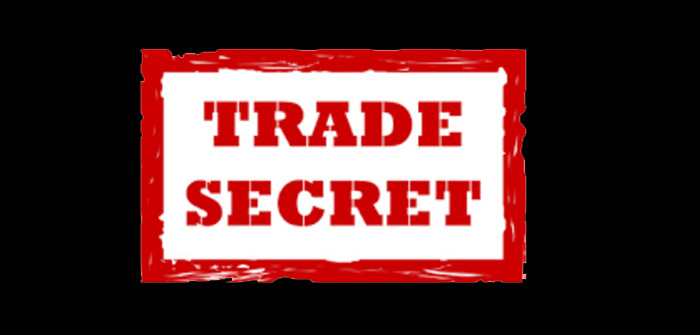President Obama just signed into law on Wednesday, May 11, a new federal law protecting trade secrets. In an exceedingly rare (at least in recent Congressional times) display of bipartisanship in Congress, both the House and Senate overwhelmingly passed the Defend Trade Secrets Act of 2016 (commonly referred to as the DTSA) by a combined 497-2 margin in April of this year. President Obama had vowed to sign the bill into law if it reached his desk.
Prior to the DTSA, companies had to rely on their state’s version of the Uniform Trade Secrets Act (UTSA). The UTSA was published by the Uniform Law Commission (ULC). The UTSA, as are all proposed acts created by the ULC, is not effective until it is adopted by a given state’s legislature. The UTSA has been enacted, at least in some form (states are not required to enact the exact version of the UTSA promulgated by the ULC), by all but a couple of states. But because the states are free to modify the UTSA when adopting it, there areoften differences between each state’s versions of the UTSA, which sometimes makes litigation for companies located in multiple states more confusing.
So what do companies have to look forward to under the new federal trade secrets law now that it has been signed into effect by President Obama?
NOTABLE PROVISIONS OF THE DTSA
Notably, the DTSA will not preempt state laws regarding trade secret misappropriation, so Oregon’s version of the UTSA will still be valid and in effect. Additionally, the remedies available under the DTSA will be similar to those available under Oregon’s state law protecting trade secrets. Aggrieved companies will be able to seek injunctive relief to stop the continued disclosure of the trade secret, as well as damages to compensate for the harm caused by the disclosure.
Attorneys’ fees are also recoverable, even potentially by a prevailing defendant (in an apparent effort to dissuade frivolous suits against a competing company when an employee leaves to work for the competitor). Upon a showing that the claim was brought in bad faith, a defendant company may be awarded its attorneys’ fees incurred in defending against the frivolous claim, which is similar to Oregon state law.
The DTSA does have a whistleblower protection provision which could limit the damages a company may be awarded in a successful suit against a former employee. Companies must provide employees notice that they will receive civil and criminal immunity for a disclosure of trade secrets that occurs in the course of reporting a violation of law (commonly referred to as engaging in whistle blowing). If this notice is not provided to an employee, or to a former employee while he or she was an employee of the company, and the company subsequently sues that employee for misappropriation of trade secrets, the company may be precluded from recovering attorneys’ fees or punitive damages, so it would be wise to include the requisite language in all confidentiality or non-disclosure agreements or handbook policies dealing with reporting procedures or trade secrets.
Similar to Oregon law, the statute of limitations under the DTSA will be three years. However, due to the value of most trade secrets and the potential for imminent and escalating harm the longer a trade secret is disclosed or made available to a competitor, actions are usually brought as soon as the misappropriation is discovered.
The most talked-about provision in the DTSA is the seizure remedy provision. The DTSA will allow a company whose trade secrets have been misappropriated to seek an order authorizing “seizure of property necessary to prevent the propagation or dissemination of the trade secret,”and such orders may even be sought ex parte, without any notice provided to the new company that has hired the former’sex-employee. Before companies begin making plans to seize all property from former employees, know that there is also a provision in the DTSA to limit frivolous or malicious seizure attempts. Wrongful or excessive seizure will expose the company attempting the seizures to civil liability under a new cause of action contained in the DTSA.
WHAT THIS MEANS FOR EMPLOYERS
This new law will not change a company’s obligation to protect its trade secrets in order to avail itself of protection of that intellectual property under either state or federal law. Companies must continue to make reasonable efforts to maintain the secrecy of trade secrets, such as using contractual agreements to prevent disclosure or use, implementing physical (such as locks on doors or file cabinets) or digital (such as passwords or file restrictions) security precautions, and marking trade secrets confidential.
What the DTSA will do is allow another avenue—at the federal level, uniform across the country—for companies to protect their trade secrets from misappropriation by spurned employees and competitors. With the enactment of the DTSA, companies should re-evaluate their trade secrets and ensure all necessary precautions have been taken so that the companies may avail themselves of the DTSA if needed now that it has been signed into law, and ensure policies and employment contracts comply with the whistleblower notification provisions.
Sean Ray is a partner at Barran Liebman LLP. He advises and represents employers in labor and employment matters and disputes. Contact him at 503-276-2135 or sray@barran.com





